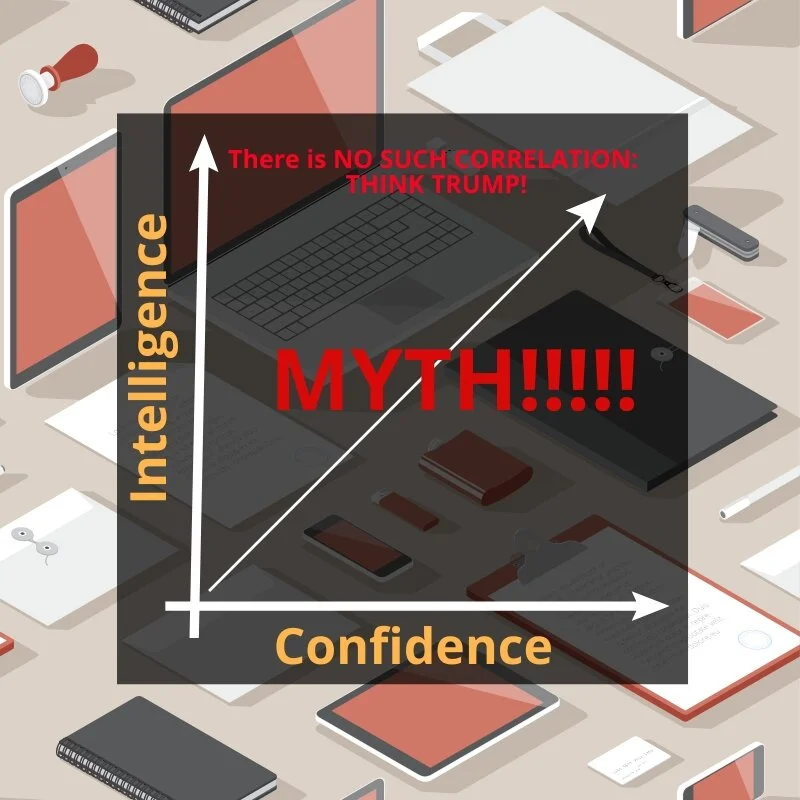Why are there So Many Incompetent Leaders? And Why Don’t they get Caught out?
Have you ever been astounded at why there are so many leaders or bosses that have been awful at their jobs? Its a common saying that people leave their bosses not their jobs. So why do so many of these bosses exist?
A rough calculation to see how many incompetent bosses you may come across in your lifetime:
People leave jobs on average every 4.6 years ( A US study figure)
The average working career length is say 45 years (65 yr old retiree vs 21 yr old graduate)
Therefore we will have had on average 10 different bosses times in our lifetime
Certain studies have shown that over 50% of their employees leave their jobs because they could not stand to work with their boss. A study from DDI measures this at 57%.
So roughly out of the 10 bosses, 6 of them could be really difficult to work with. That’s more than 1 in 2!
*note whilst more the 50% of employees leave because of their boss, I’m sure in some scenarios it may be the employees who have incompetence issues rather than the boss! However I’m sure we’ve all experienced a bad boss or at least seen one from afar (mumble: Boris Johnson).
Key reasons why incompetent people are hired and why their bosses do not spot it:
1.) People mistakenly believe that confidence = competence
2.) People mistakenly believe that charisma = competence
3.) The incompetent boss may be crap at managing downwards, but amazing at managing upwards. As long as their team can deliver the goods, all he/she just has to do is hand it on a plate to their boss. Their boss ultimately might not give crap that the team below aren’t happy, so long as they get the end result.
4.) Their boss is unlikely to side with the wider team if they hear complaints about their boss, because
a.) they themselves are a boss and will only empathize with another boss
b.) they have a close relationship with the boss and zero relationship with the wider team.
c.) they themselves may value confidence and charisma over competence because they themselves have benefited from the same. They place their own competence within being confident and charismatic instead of being technically or strategically competent
How does incompetency rise through to the upper levels?
Meritocracy exists even less at all upper levels of life. Studies performed by the Sutton Trust consistently show that whilst less than 10% of the population are privately educated, almost 40% of those in positions of power are privately educated. Private schools place a lot of importance on things like public speaking, making an impact, and verbal communication. And the top reason for parents to send their children to private school is to get access to key contacts and networks. These are all valuable skills, however when these skills and networks are valued more than competence or mistaken for competence then true competence can be completely lacking. When the managerial and leadership chain includes so many people who over value skills such as confidence and charisma, assessment of technical knowledge and strategic based competence can be sidelined completely.
So with quite a high proportion of upper management valuing confidence over competence, why are not more companies falling over?
Companies will survive because there is a team underneath them who in large are competent at what they do and that completely supports incompetence at the top.
Take the UK government: we have a leader who boasted about shaking hands with Covid-19 patients when it’s been clear from news in other countries that social distancing, washing hands are the keys ways to prevent exponential spread. Whilst we have leaders who are unable to lead via competence, we have an NHS team who will work hard enough, and even sacrifice their lives to keep treating people. In the end humanity will survive due to the hard work of the many at the front line, however there will have been an unacceptable level of preventable deaths. But as humanity in large survives, we may forget those that died and we may never question hard enough those at the top. (Some questions are now getting through, but will they be heard?!)
At least with a government we are able to vote for change, in a company that just isn’t possible. As long as the companies continues to operate without imploding, bad leadership persists unchecked and unchallenged. Change unfortunately only tends to happen when the shit hits the fan.
So why do incompetent senior leaders often go unchallenged? Why do we have to wait for the shit to hit the fan?!
Managers may not challenge each other or their leaders because they are very good at keeping their bosses happy by being yes men. The more incompetent they are, the more insecure they are and the more they are likely to be yes men to your boss and peers. As well as not having the skills to ask the right question and challenge, their main focus is to be agreeable to their bosses. They may not have hit their targets, but they are able to charm their boss so much they still get paid their annual bonus.
Managers may not challenge each other and/or their leaders because they empathize with the difficulties of being a boss. They may project their own insecurities of being a boss and defend their boss for their completely unrelated incompetence. They themselves would hate to be challenged, so wouldn’t wish to upset their boss by challenging them. These managers are never truly confident, they are insecure and see challenge as an attack rather than as communication and a chance to rectify or improve the status quo.
Again take the current Covid-19 situation. Some of the general public may feel that they should have taken the threat more seriously, as such, they could be defensive towards others challenging that the government should have acted sooner because they may perceive it as a criticism against themselves, despite it not being so.
Incompetent leaders may deliberately promote incompetent middle managers to:
be yes men, not challenge their authority
be the fall guy, when they make the wrong decision
not be a threat, and highlight their own incompetence and insecurity
So what do we do about this upside down state of affairs?
Those who make hiring decisions should be aware that confidence does not have positive correlation with competence, and therefore technical tests/ questioning/ projects should be part of the hiring process.
Those hiring should ensure that their leadership contains a mixture of people from a variety of social and economic backgrounds, ethnicity and gender. A diverse and balanced leadership team will not make the mistake of solely hiring managers who just look the part, because there is no one set “look” i.e. just looking confident.
Those in senior positions should provide a platform/ voice to the main workforce, and listen to criticisms, seeing it as a opportunity to grow and gain viewpoints from a broader perspective.
Don’t be afraid to keep challenging, true competent leaders should not see it as criticism but as communication, ensuring all options are fully considered before a decision is made.
If the hundreds of scientists had not openly questioned and challenged the Covid-19 herd immunity strategy of the UK government, there may not have been a U turn to commence stricter social distancing controls.
Those of us who are competent should push themselves to play the game. Project confidence and make an impact, after all your voice is backed up with experienced and technical competence unlike others who only possess bluster. We need to be heard by the top, and if the only language they understand is the the language of perceived confidence and charisma, then learn to speak it!
Those managers who feel insecure and feel unable to challenge, should seek ways to improve their technical competence, get training, learn from their team, get their hands dirty and improve their knowledge. With better technical foundations they can improve their level of inner confidence and feel able to challenge and question their leaders. And if they can do so on behalf of their team, then their team will feel genuinely supported.





